Published
- 02:00 am

CG Blockchain, Inc., a New York-based company developing powerful sets of blockchain-based tools and services for the financial services industry, today announced that its affiliate BCT Inc has closed the online public sale of its BCT ERC20-compliant utility token, raising over $31 million.
The BCT public token sale began April 1 and tokens are scheduled to be distributed at the end of May. Before the distribution date, BCT Inc will continue discussions with interested parties that include exchanges, beta testers and distribution partners, who can still buy the token beyond the conclusion of the online public sale. BCT Inc has set a cap of an additional $20 million for these potential buyers.
BCT Inc offers a comprehensive suite of proprietary and third party application tools for hedge funds, wealth management enterprises, and other institutional traders to trade cryptocurrency through its Blockchain Terminal, a single, integrated interface for trading cryptocurrency across 65 major cryptocurrency exchanges. Among the third party applications planned for the Blockchain Terminal is ComplianceGuard, owned by BCT Inc affiliate CG Blockchain, the first software developed to monitor traders’ desktops while simultaneously writing all transactions to a private blockchain, rendering the transactions immutable. The Blockchain Terminal with the ComplianceGuard software is currently running with a select group of traders and hedge funds that have approximately $1.8 billion USD in assets under management.
“During the past two months, the Blockchain Terminal has hit milestone after milestone: growing its exchange base from two to four to 40 to now over 80 exchanges on the platform. The Blockchain Terminal now features a UI/UX that is beautiful and easy to navigate, and a consolidated order book that is much easier to use than any other platform we’ve seen. The Blockchain Terminal has been shipped to domestic and international partners in both crypto and traditional trading. And there is much more to come,” said CG Blockchain President Bob Bonomo.
CG Blockchain is also actively collaborating with companies such as computer technology company Dell and algorithm marketplace Tradingene for additional features and markets.
“To have achieved what the team at BCT Inc has managed to do during such a difficult time for the ICO market is extraordinary – and I believe the Blockchain Terminal will change the way the market operates when it is adopted widely,” said Joel Emery of Tareo Capital, a CG Blockchain advisor and Blockchain Terminal tester.
The BCT utility token is the primary token powering the Blockchain Terminal ledger. The Blockchain Terminal also includes a secondary ERC20-compliant token, available since the platform’s launch, that represents subscription and entitlement to the services provided by the native BCT token. Together, the two tokens secure integrity and provide incentives for the correct functioning of the Blockchain Terminal platform.
“Given the current turbulence of the ICO market, we couldn’t be happier about the response to the Blockchain Terminal token. We want to thank all of our advisors, partners, employees, and token participants for their efforts during this process,” said CG Blockchain President Bob Bonomo. “As impressive as that effort is, we still have much work ahead, from finding additional partners to token distribution to continuing to build out the top crypto-focused resource for hedge funds and other investors.”
Related News
- 01:00 am
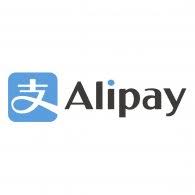
Alipay, the world’s largest online, mobile payment and lifestyle platform, operated by Ant Financial Services Group, today announced the addition of two new money market funds to Yu’e Bao, the spare cash management platform within the Alipay app.
The new funds, managed by Bosera Asset Management Co., Ltd and Zhong Ou Asset Management Co., Ltd, respectively, will be integrated seamlessly into Yu’e Bao alongside the platform’s one existing money market fund, managed by Tianhong Asset Management Co., Ltd. Starting from May 4, 2018, Yu’e Bao users will have the choice of three money market funds with which to generate returns on their spare cash. To ensure a steady transition, the subscription of newly introduced funds will be made available to some Yu’e Bao users first, and rolled out to cover the rest in batches.
“The addition of these new money market funds to Yu’e Bao is in line with Ant Financial’s commitment to using technology to make financial services more inclusive, and to working closely with traditional financial institutions,” said Guomin Zu, Vice President of Ant Financial's Wealth Management Business Group. “Partnering with Bosera Asset and Zhong Ou Asset will enable Yu’e Bao users to access more funds with the same seamless experience that they have enjoyed since 2013. We look forward to adding other high-quality money market funds to the Yu’e Bao platform, giving users more choice and our partners the opportunity to connect with a much broader user base.”
“We have worked together extensively with Alipay’s team to ensure our systems can handle volume and deliver users the same seamless experience they have been used to with Yu’e Bao,” said Xin Xu, Deputy General Manager of Zhong Ou Asset Management. “By partnering with Ant Financial, we look forward to providing first-class wealth management products and services to our users.”
“Ant Financial is a key strategic partner for us,” said Deying Wang, Vice President of Bosera Asset Management. “We are very excited to join Alipay’s Yu’e Bao platform to provide more and better financial products and services.”
Yu’e Bao is an online spare cash management platform within the Alipay app that is designed to enable users to safely and efficiently manage their spare funds. Users can seamlessly access the funds in their Yu’e Bao account to make online and offline purchases. This will continue to be the case whichever of the three Yu’e Bao funds users choose to invest in.
Upon its launch in 2013, Yu’e Bao integrated a money market fund from Tianhong Asset Management Co., Ltd, which quickly grew to become the largest fund of its kind in the world, with over 400 million users. To better protect the interests of investors, Tianhong Asset Management has been taking a number of proactive measures to control the pace of Tianhong Yu’e Bao’s growth since 2017. The most recent adjustment was a daily total subscription cap enacted on February 1, 2018. Initially, the newly introduced money market funds will not feature a subscription cap, which will help improve the user experience on the Yu’e Bao platform.
Related News
- 04:00 am

A bespoke growth and support scheme is delivered by some of the country’s top entrepreneurs and business leaders, accompanied by expert advice and workshops, targeted trade missions and access to live leads and opportunities through on-the-ground support in key global markets.
Soldo Founder and CEO, Carlo Gualandri, said of the programme: “We are very much looking forward to the opportunities available through The Mayor’s International Business Programme, Go To Grow. London has become a powerhouse for financial technology, renowned across the globe for innovation. Soldo is a fantastic example of a product that is totally changing the way both enterprises and SMEs manage their money and we’re excited to spread the good news through Go To Grow.”
Related News
- 05:00 am

Ingenico Group, the global leader in seamless payment, has today announced the successful UK launch of an exciting new mobile payment solution for merchants, in partnership with Paymentsense, Europe’s largest merchant service provider.
From today, UK merchants of all sizes can bring the point of sale direct to their customers with a slim, light, elegant and super-fast payment device, easily integrated into their existing POS systems.
Using Ingenico’s Link/2500 mobile payment device, connected via Paymentsense’s Connect software, retailers can quickly implement a fully mobile checkout experience without complex integration or major system changes. Consumers can pay with contactless, Apple Pay and Google Pay, as well as the full breadth of traditional cards.
For a retailer, that means less queuing, a more personal consumer experience and more selling space. For a restaurant, it means that pay-at-table is a slicker experience, with more waiting staff empowered to take a payment. That means less waiting, faster turnover of tables and happier diners.
The technology behind the solution combines Ingenico’s new Link2500 payment device with an API connecting directly to Paymentsense’s proven cloud-based Connect solution.
Paymentsense back this solution with a 24/7 support service – vital, especially for the hospitality industry.
Guillaume Pascal, Managing Director Europe, Banks & Acquirers Business Unit, said; “We are delighted to bring this solution to market in partnership with Paymentsense. As the first UK deployment of the Link/2500, the thinnest mobile payment device of its kind, we are confident that as part of Paymentsense’s Connect solution it will help SMEs to access the benefits of integrated payment.”
Baird Kleinsmith, Chief Integrated Payments Officer, Paymentsense, commented: “We're excited to have added the Link/2500 to the list of Ingenico devices supported by Connect. Demand for a compact-footprint mobile device is high among our ePOS partners and we are thrilled to be meeting that need through our partnership with Ingenico. We expect that the joint solution will contribute significantly towards making integrated payments more accessible to SMEs in the UK.”
Ingenico will be demonstrating the solution live at the Retail Business Technology Exhibition 2018, London on Thursday 3rd May on Stand C100.
Related News
- 09:00 am
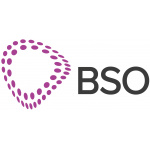
Global network provider, BSO, today announced significant reinvestment back into the business to support its mission to deliver an even better service to its global customer base.
The multi-million-dollar investment in senior people, systems, operational efficiency and productivity means that the teams have the best tools and resources available to respond to the ever-changing needs of clients. The additional capital supports a number of new enhancements to BSO’s network operations and service delivery model, and reinforces the firms operational presence in Europe, the Middle East, Asia and North America. The expansion builds upon BSO’s follow-the-sun GNOC support service, which is now supported by regional managers who liase with local suppliers and customers in every continent.
The service delivery team has doubled in size, with all staff trained in Agile Project Management, which is now managed by Ian Keal, a highly experienced telecoms professional. The Agile methodology covers the people, products and techniques required to successfully implement projects in the modern business environment. This growth ensures that BSO can respond and adjust quickly to its customers’ demands.
In addition to the operations and service delivery team expansion, BSO is boosting the capabilities of its customer assurance team led by Daniel Drysdale - which looks after some of the firms biggest clients. With customer growth expanding deeper into financial markets, BSO requires an increasingly diverse knowledge base within the operations teams. The reinvestment supports some of BSO’s largest service offerings, including high-availability managed platforms, and wireless microwave connectivity - following the recent acquisition of Apsara
The executive behind this strategic investment drive, Emmanuel Pellé, Chief Operations Officer at BSO, said: “The expansion of our global team’s capabilities is a significant moment for BSO. Our highly skilled engineering teams are available 24 hours a day due to their strategic placement across Europe, U.S and Asia time zones. The multi-million-dollar investment we have made in all aspects of our operations further exemplifies our determination to provide the best possible customer service so that we can better connect and manage growing customer infrastructure demands across the globe.”
Related News
- 08:00 am
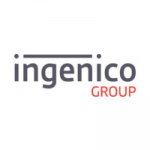
Ingenico Group, the global leader in seamless payment, has today announced the successful UK launch of an exciting new mobile payment solution for merchants, in partnership with Paymentsense, Europe’s largest merchant service provider.
From today, UK merchants of all sizes can bring the point of sale direct to their customers with a slim, light, elegant and super-fast payment device, easily integrated into their existing POS systems.
Using Ingenico’s Link/2500 mobile payment device, connected via Paymentsense’s Connect software, retailers can quickly implement a fully mobile checkout experience without complex integration or major system changes. Consumers can pay with contactless, Apple Pay and Google Pay, as well as the full breadth of traditional cards.
For a retailer, that means less queuing, a more personal consumer experience and more selling space. For a restaurant, it means that pay-at-table is a slicker experience, with more waiting staff empowered to take a payment. That means less waiting, faster turnover of tables and happier diners.
The technology behind the solution combines Ingenico’s new Link2500 payment device with an API connecting directly to Paymentsense’s proven cloud-based Connect solution.
Paymentsense back this solution with a 24/7 support service – vital, especially for the hospitality industry.
Guillaume Pascal, Managing Director Europe, Banks & Acquirers Business Unit, said; “We are delighted to bring this solution to market in partnership with Paymentsense. As the first UK deployment of the Link/2500, the thinnest mobile payment device of its kind, we are confident that as part of Paymentsense’s Connect solution it will help SMEs to access the benefits of integrated payment.”
Baird Kleinsmith, Chief Integrated Payments Officer, Paymentsense, commented: “We're excited to have added the Link/2500 to the list of Ingenico devices supported by Connect. Demand for a compact-footprint mobile device is high among our ePOS partners and we are thrilled to be meeting that need through our partnership with Ingenico. We expect that the joint solution will contribute significantly towards making integrated payments more accessible to SMEs in the UK.”
Related News
- 02:00 am

Today Fidor Group has been recognised for its innovative and differentiating customer experience, as one of the pioneers in the use of open APIs in banking. This is according to a new report released today by Celent entitled “APIs in Banking: Unlocking Business Value with Banking as a Platform”, written by Patricia Hines, CTP. This report can be viewed here.
Celent previously named Fidor Bank as “Model Bank of the Year 2015”.
The report focuses on how APIs are critical to the enablement of technology in banking, detailing four specific use case areas: application integration, banking as a platform, innovation, and client connectivity. It also identifies different primary target audiences for each of the four API approaches:
- APIs for Integration: Enterprise architects and developers
- APIs for Banking as a Platform: Digital neobanks
- APIs for Innovation: Fintechs
- APIs for Connectivity: Bank customers
The Celent report highlights Fidor’s ability to create an environment of openness, creating an experience that is truly innovative. Celent detailed that Fidor’s commitment to collaborate and co-innovate, through APIs, was demonstrated in five specific ways:
1. Open APIs for Marketplace Ecosystem
Fidor pioneered the first direct-to-consumer marketplace offering an online retail experience combined with community features. Customers can fulfil their financial needs with a broad array of solutions from over 50 providers. Through open APIs, Fidor’s partners can offer their services to the company’s customers.
2. Open APIs and Sandbox for Educational Purposes
Fidor has partnered with universities and other educational entities with the launch of its Fidor Student Academy, as it believes that education is critical to driver further innovation and progress in the fintech industry. It has now partnered with Singapore’s five polytechnic high schools, offering a white-labelled Fidor Sandbox to train students in simulated, digital banking situations and environments, with the freedom to create their own fintech businesses using Fidor APIs.
3. Open APIs for Cryptocurrency
While Fidor Bank itself is not involved in the trading of cryptocurrencies, its open APIs enable real-time clearing of Euro-currencies following the trade of a cryptocurrency. The API-enabled service for cryptocurrency helps Fidor’s partner bitcoin.de to display Fidor’s customers on its own portal for trading, identifying real-time clearing capabilities, and ensuring trust and efficiency for traders in an extremely volatile market.
4. Open API for Incumbent Banks and Consumer-Led Organizations
Fidor has pioneered the Bank-as-a-Service (BaaS) concept. This approach allows it to launch new digital banks using its own white-labelled software solutions. These services are wide-ranging and offer: white-labelled front ends, banking expertise and products, anti-money laundering risk and compliance, customer service, cloud deployment, banking operations and Fidor Bank’s license. Thanks to this concept, in 2016 Fidor introduced, in partnership with Telefónica Germany, “O2 Banking”. This was the first mobile-only bank account in Germany and this model created new benefits for customers including, for the first time, O2’s customers claiming data bonuses.
5. Open API for B2B Fintech Partners
Through its product offering and banking license, Fidor fosters inclusion in the financial ecosystem. This is because through its open APIs it enables fintech partners to extend their business model with specific banking services such as credit, payments, cards, and escrow accounts.
Patricia Hines CTP, Senior Analyst of Corporate Banking at Celent wrote in conclusion: “Fidor states that it is the oldest fintech, and its early adoption of an open banking approach makes it the most experienced bank in building APIs. The bank counts today hundreds of available APIs that enable the creation of new revenue models and business concepts. The API-based microservice architecture allows for an ever-growing portfolio of offers that include various innovative services.”
Hines continues, “Fidor is redefining the customer experience by taking advantage of architectural openness, partner ecosystems, and a community focus. With a focus on innovation and years of experience operating as an open bank, Fidor created the first direct-to-consumer marketplace providing over 50 fintech, insurtech, and tradetech offerings to its customers. Fidor makes it simple for any API-enabled organization to connect to its platform, expand, and be future ready. Its ecosystem evolves with more and more partnerships, creating international communities with opportunities at a global level.”
Ge Drossaert, Member of the Board, at Fidor Group said: “More than four years ago we committed to open up access to our APIs, with a vision to co-innovate and collaborate with our partners. By opening up our banking-infrastructure through APIs, we have found that this helps not only Fidor but also our third-party partners to build new, exciting applications and products which impacts positively upon the end-consumer and also the industry.”
Related News
- 09:00 am
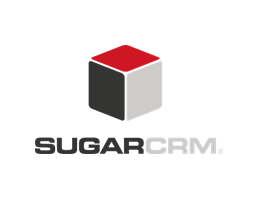
SugarCRM Inc., the company that helps organisations build better business relationships, today announced new features for its entire cloud and product portfolio that will enable financial businesses to implement best practices for data privacy.
Data privacy-related functionality is now available as part of the company’s Spring ‘18 Cloud update as well as the Sugar 8 release for on-premise customers.
“SugarCRM has a reputation as a trustworthy CRM provider, so it’s not a surprise they took the GDPR challenge head on,” said Rebecca Wettemann, vice president at Nucleus Research. “What SugarCRM has done with this investment is accelerate time-to-compliance for customers and reduce the time and effort they need to ensure they’re managing GDPR compliance on an ongoing basis."
SugarCRM’s new features will ensure financial institutions are better prepared for whatever comes next. New privacy-related features include:
A “command centre” for data privacy - Sugar now includes a new module to address and log all customer requests related to data privacy.
The advent of the data privacy manager (DPM) - SugarCRM added a new role within Sugar to review requests and mark records for erasure.
Easy access to stored customer data - Sugar introduces a Personal Information Log (PI Log) feature that captures the sources of customer data input and modifications. Companies can send the personal data within the PI Log to data subjects upon request.
Flagging Customers who object to data processing - Sugar users can “flag” anyone who requests that their personal data is not used in profiling or automated business processes. This is then used as a filter in campaigns and reports.
Email Communications - A new global setting specifies if new email addresses should default to “opted-out” or “opted-in” for customer communications. If an email address is set to opt-out, a clear visual indicator is next to wherever Sugar displays the email address.
Managing Consent - Organisations now manage within Sugar the process of a person providing “consent” to the storing and processing of their personal data. If the customer withdraws consent, Sugar records the request within the data privacy management module.
Limiting data collection to only what is necessary - Data privacy regulations dictate that businesses should only process relevant personal data, and all other personal data may be inappropriate. Admins can easily remove unneeded fields via Studio (Sugar’s configuration console for admins).
SugarCRM HintⓇ - Customers and prospects can request that any personal data not relevant to doing business be removed from all systems. Companies can now control what data is provided via a Hint search.
Sugar Cloud - SugarCRM has put internal policies in place to protect our customers’ data in our cloud and to perform our obligations as a data processor.
“SugarCRM has a reputation as a trustworthy CRM provider, so it’s not a surprise they took the GDPR challenge head on,” said Rebecca Wettemann, VP Research at Nucleus Research. “I’ve seen an early demo of the new features coming in Sugar and I’m excited to see how they will help organisations implement best practices for data privacy.”
The latest version of Sugar is available for both cloud and on-premise customers today.
Related News
- 01:00 am
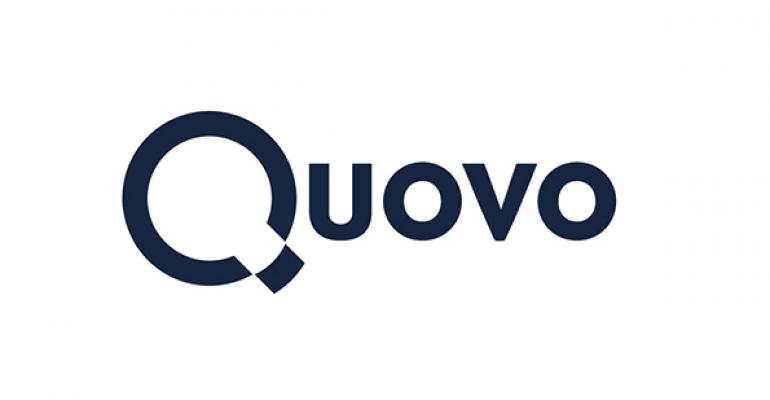
Quovo, a data platform providing connectivity to consumer financial accounts, today announced its expansion into the Canadian market.
The expansion is facilitated by an investment from Portag3 Ventures, a leading Canadian-based venture capital firm exclusively sponsored by Power Financial Corporation, IGM Financial Inc. and Great West-Lifeco Inc. The investment brings Quovo’s total funding to date to $20 million.
Quovo provides companies with connectivity and insights for millions of consumer financial accounts across more than 14,000 different institutions. Quovo’s technology retrieves, organizes, and analyzes data from across the full breadth of financial accounts. Leading financial services companies, such as SoFi and Betterment, rely on Quovo to provide the data and insights they need to predict, transact, and personalize their services more effectively and with greater confidence.
“Canada holds immense growth potential for Quovo and we’re excited to replicate our US success in the Canadian market, which is home to a thriving fintech ecosystem and financial institutions hungry to adopt innovative technologies,” said Lowell Putnam, CEO and co-founder of Quovo.“The decision to raise funding from Portag3 was about much more than capital. Portag3 is well connected in the Canadian financial services industry and is helping us to hit the ground running as we work to establish ourselves in the market.”
“The Canadian market holds tremendous promise for aggregation and we believe Quovo is the global market leader. We are excited to be their partner as they expand into markets outside the United States,” said Adam Felesky, President of Portag3 Ventures.
Quovo is partnering with Canadian fintech companies and incumbent institutions alike to provide enhanced account connectivity and to enable Canadians to make healthier financial decisions.
“While we’ve already expanded our Canadian institutional coverage and updated our data model to include Canadian financial account types, our expansion into Canada isn’t just about product localization—we’re fully committed to building a sustainable business to support the country’s growing financial services sector,” said Brad Joudrie, Director of Quovo in Canada. “The investment from Portag3 will enable us to build out a regional team, deliver on Canadian consumer requirements, and fuel innovation in Canadian financial services.”
Related News
- 08:00 am

Coinme, a financial services and blockchain technology company, announced its latest deployment of eight new crypto ATMs in the state of California, bringing its total locations in the state to 23 ATMs.
The company offers Californians the ability to easily and instantly buy or sell cryptocurrency, and take advantage of its seamlessly integrated digital wallet and exchange services.
“We are dedicated to bringing the best of the cryptocurrency economy to the diverse population of California and the world,” said Neil Bergquist, cofounder and CEO of Coinme. “In addition to a large technical community that appreciates the digital, decentralized qualities of crypto, there is an unbanked population who can now use Coinme as an onramp to participation in the financial system.”
Coinme established the first crypto ATM in the U.S. in 2014 and plans to expand its network across the country and the world, with more than 50 locations to date. The company also offers a vertically-integrated digital wallet, digital exchange, and crypto investment services, including IRA and 401K plans, to make it easier than ever to participate in the crypto economy. In addition, Coinme’s crypto ATMs offer a unique benefit over online exchanges – the ability to buy and sell Bitcoin and other cryptocurrencies instantly, with zero wait times.
The new Coinme crypto ATM locations include both urban and suburban locations, drastically cutting down on travel times, and opening up new cities and neighborhoods entirely.
New locations include:
• Bay Area - A new location in San Jose, alongside those in Berkeley, Milpitas, Oakland and San Francisco, gives residents of the Bay Area many options to take advantage of its services.
• Fresno - Coinme’s was the first crypto ATM to be deployed in the city, and due to increasing demand, the company has added a second location for even easier access.
• Los Angeles (3) - With new locations in Arcadia, Sherman Oaks and Valencia, Coinme now offers ten crypto ATM locations in Los Angeles to make it easier than ever for the city’s population to access crypto, even during rush hour.
• Palm Desert - The new location in Palm Desert is the first in the Coachella Valley, and its proximity to both Indio and Palm Springs offers easy crypto access to nearly 500,000 residents.
• San Diego (2) - In addition to Coinme’s new ATM in Escondido, the company has deployed the first crypto ATM in La Jolla. These new locations join the existing San Diego-based crypto ATM at Gamesync, the only fiber LAN arena in the city.









